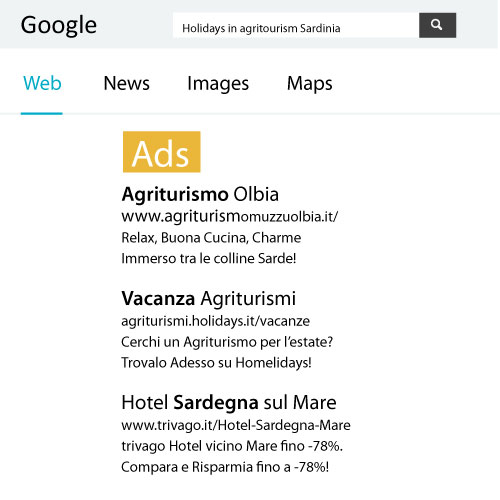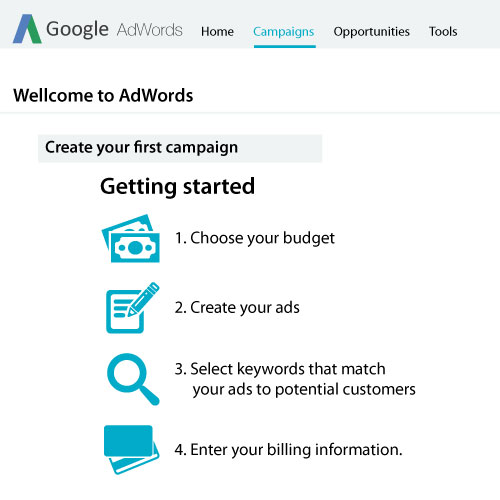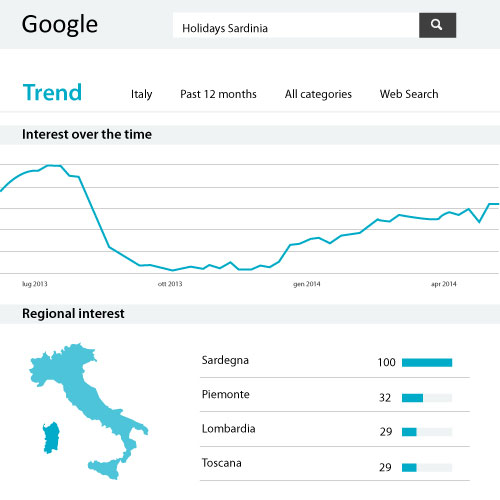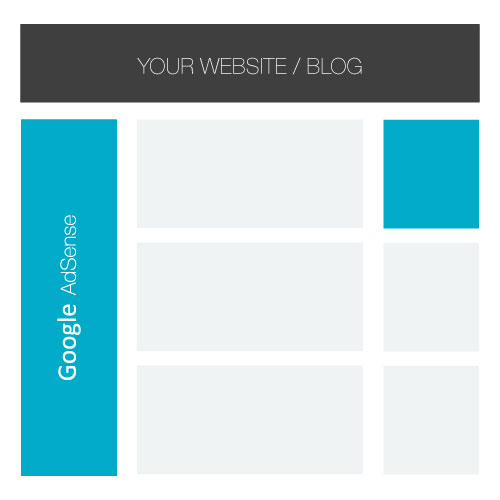Not very well known, AdWords and AdSense are two Google services that can help you promote your brand across the web. Lets find out how they work.
AdWords
Have you ever noticed that the first few links on a Google search result page usually look different? These are in fact paid adverts that are displayed based on your search query. These, being on the web, have the great advantage of being displayed only to those users that are actually interested (or at least searching for) the services/products being displayed. Usually the ads are placed on the top or on the right of the search results page and are differentiated by colour and by the label "Ads". The service works very well - as an example if I search for "holiday agriturismo Sardinia" I will get very specific services matching my search criteria.

AdWords lets you promote your brand by appearing in Google's search results. You can decide when and how often your brand should appear and you have full control over your AdWords campaign. You will have to indicate, amongst other things, the keywords, the frequency, the text and the underlying link. You also have the option to configure a large number of more advanced settings.

It is very important, before starting a Google AdWords campaign, to carefully study and research your target search results to better understand what your potential customers are actually searching for. Google provides a number of tools to help you with this, the most notable one being Google Trends that lets you look into the frequency of any keyword in Google searches across the globe with relevant time and geo location info. Searches for "holiday" related items for example have a sinusoidal trend that grows from the end of the winter reaching its peek between June and July. In reality it is usually better to target search terms that are not too popular to avoid competition. Google in fact displays the ads based on how much a customer is willing to pay for it. The more the competition, the more likely you will have to increase your budget for your advertisements to be displayed. So sometimes it is better to target more specific searches, for example "holiday agriturismo Sardinia" vs just "holiday Sardinia".
From the campaign console you can set, as mentioned, the maximum amount you are willing to pay per click (CPC max.). Google will use this information when calculating which ads should be displayed. Bare in mind Google will be trying to maximise its revenue, so higher bidders usually take priority.
You can also set an overall budget limit to your campaign. It is usually a good idea to set this low at first so you can study the behaviour and the various metrics Google provides in regards to clicks, average cost, position etc. You may then wish to edit your settings before increasing the budget. Also, although AdWords is a paid service, it is usually easy to find free entry offers for first time users - do try and take advantage of these as best as you can.

AdSense
AdSense is the opposite of AdWords. Using AdSense Google gives you the possibility to display someone else's ads on your site or blog. You can chose the size and position of the banners and you can select the general filter criteria to apply if any. Google will then match your filters against the AdWords user base, and, whenever a user accesses your site, it will display an appropriate ad also taking into consideration, where relevant, your site's content. You can notice how Google targets ads very easily when you perform a search whilst being logged in to your Google account (if you have one). You might find in fact, that although you are browsing an unrelated site, the ads that are appearing are related to your recent search queries. This is very similar to what Facebook is implementing within the social network.

Even the AdSense dashboard offers in depth analytic information displaying number of clicks, income, time lines and more. Earnings are usually not very high unless you have a site that generates a large amount of traffic. In any case, depending on the category of your site, it may be an easy way to pay off your hosting bills.
Finally lets not forget that AdWords (and AdSense) are where Google makes most of its money. If you have any questions, please contact us!
Share this article